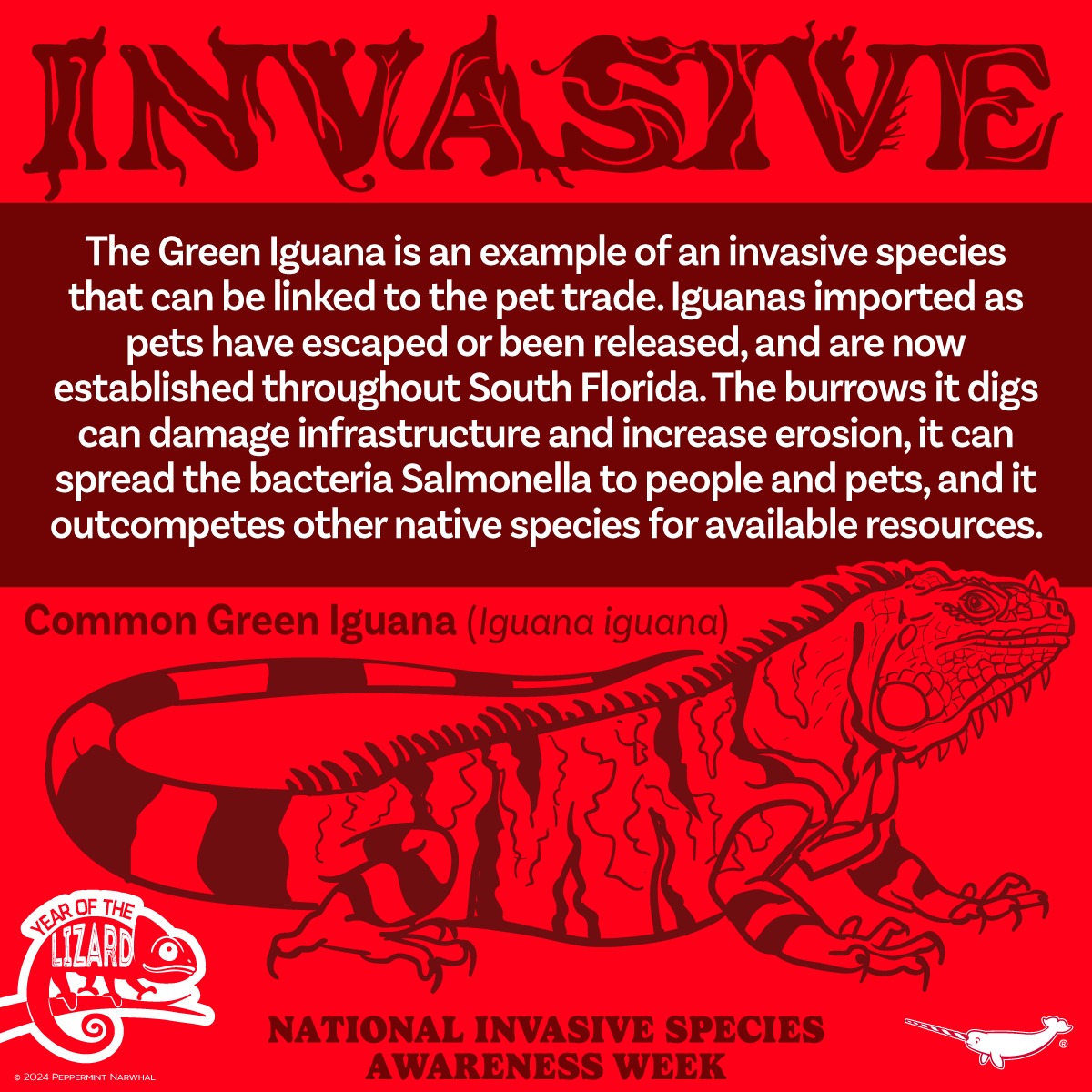National Invasive Species Awareness Week, observed from February 26 to March 3, 2024, serves as a crucial period to educate the public about the environmental and economic threats of invasive species. Drawing from a rich knowledge base in zoology, zoo management, and wildlife conservation, this article delves into the complex nature of invasive species, with a particular focus on the common green iguana (Iguana iguana) as a case study. Our discussion will center around three key themes:
1. Understanding Invasive Species: Definitions and Impact
2. Case Study: The Common Green Iguana as an Invasive Species
3. Strategies for Management and Conservation of Native Ecosystems
Invasive species are non-native organisms introduced to an ecosystem that harm the environment, economy, and human health by establishing, increasing, and spreading uncontrollably. Such introductions can be accidental, such as ballast water discharge from ships or intentional, such as in the pet trade or agriculture. Once established, invasive species can be challenging to control, leading to irreversible changes in habitat structure, nutrient cycling, and species composition.
Invasive species have a broad and deep impact, affecting biodiversity and human livelihoods. The United States spends billions of dollars annually on managing invasive species, including attempts to control their spread, repair damaged infrastructure, and mitigate impacts on agriculture and forestry. Ecologically, invasive species are among the primary threats to native wildlife, contributing to the decline and extinction of native species through competition, predation, and disease transmission.
The Common Green Iguana is a compelling example of how invasive species can pose significant challenges to natural and urban environments. Native to Central and South America, green iguanas have become established throughout South Florida, primarily due to the pet trade. Their proliferation has ecological and economic ramifications such as weakening flood control structures, causing sidewalks to collapse, disrupting landscaping efforts, feasting on various plants, flowers, and fruits, affecting local farming and horticulture, and posing a risk to humans and pets as carriers of Salmonella. Furthermore, by outcompeting native species for resources, they disrupt local ecosystems, leading to reduced biodiversity.
Mitigating the impact of invasive species such as the green iguana requires a multifaceted approach, combining public education, legislative measures, and scientific research. Awareness campaigns such as National Invasive Species Awareness Week are crucial in educating the public about responsible pet ownership and the risks of releasing pets into the wild. Legislative measures, including bans on the importation and sale of certain species, along with checkpoints and fines, help limit the introduction of potentially invasive species.
On the scientific front, research into biological control methods, habitat management, and ecosystem restoration provides promising avenues for mitigating the impact of invasives. For instance, studies into the natural predators of the green iguana or the development of humane and ecologically responsible population control methods can help manage their numbers in non-native environments.
Public involvement in citizen science projects and community-based conservation efforts is crucial in managing invasive species. Individuals can contribute significantly to managing invasive species by reporting sightings, participating in removal efforts, and supporting local conservation organizations.
In conclusion, National Invasive Species Awareness Week 2024 provides an excellent opportunity for education and action in the fight against invasive species. Through informed and concerted efforts, we can work together to protect native ecosystems from the profound challenges posed by these ecological intruders. By understanding the issue’s complexity, studying the specific case of the green iguana, and employing strategic management and conservation efforts, we can make strides toward healthier, more biodiverse environments for future generations.
*****
Source Description
February 26 – March 3, 2024 is National Invasive Species Awareness Week.
Invasive – Common Green Iguana (Iguana iguana)
The Green Iguana is an example of an invasive species that can be linked to the pet trade. Iguanas imported as pets have escaped or been released and are now established throughout South Florida. The burrows it digs can damage infrastructure and increase erosion, it can spread the bacteria Salmonella to people and pets, and it outcompetes other native species for available resources.
Stay connected with us all this week to learn more about animals that have become problematic invasive species in the USA.
Shop www.peppermintnarwhal.com


